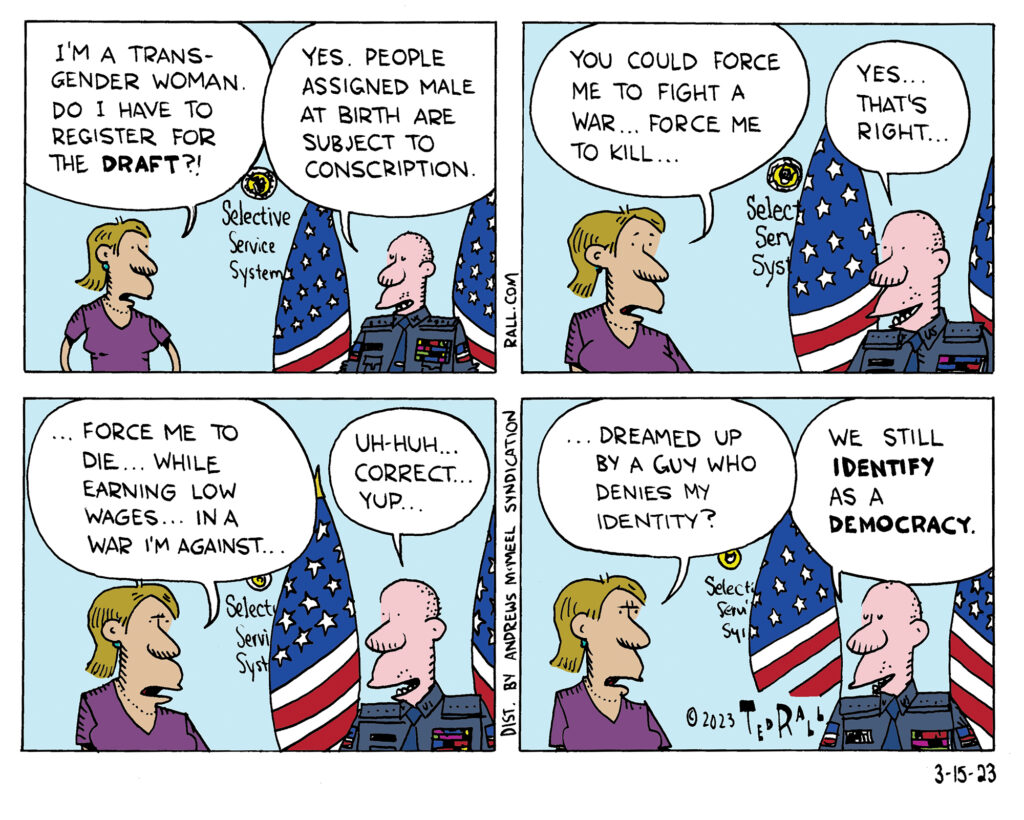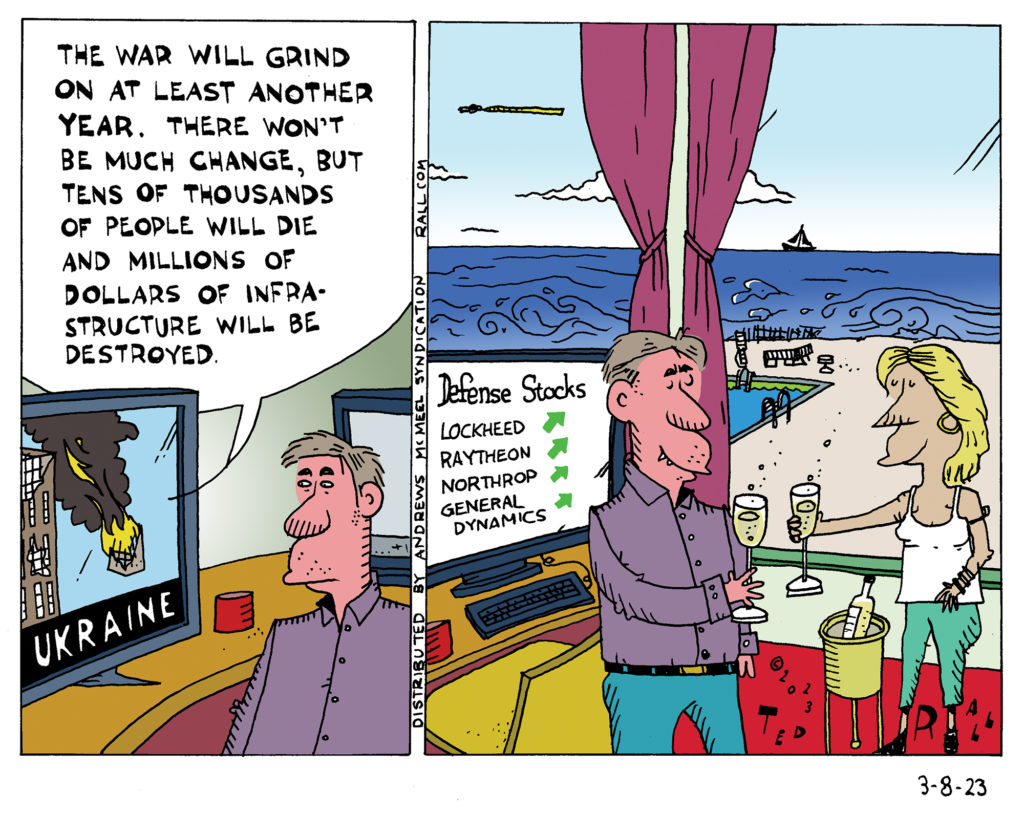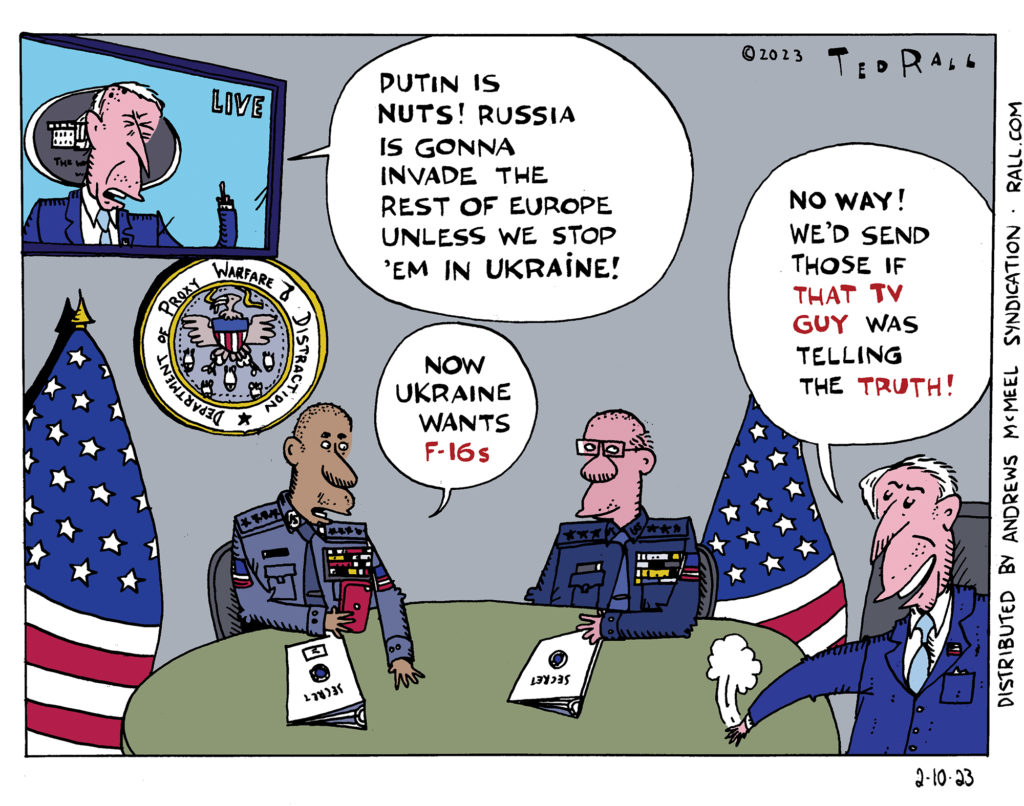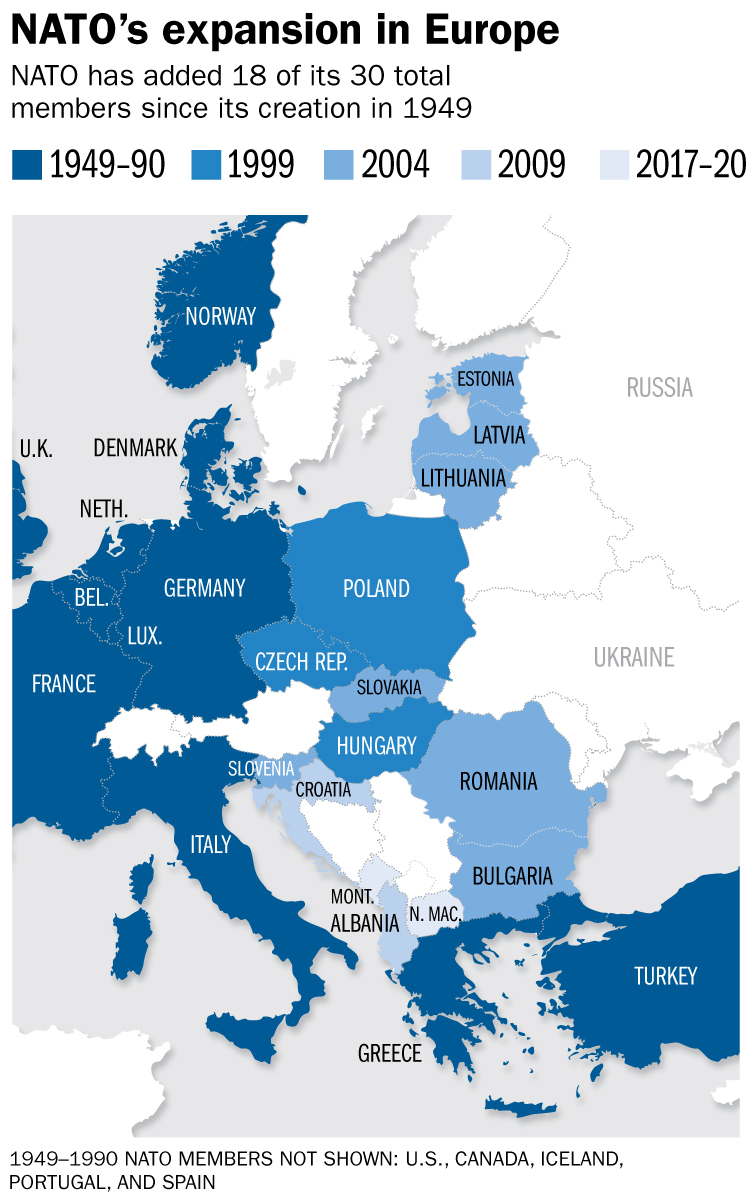Editorial Cartoonists Ted Rall (from the political Left) and Scott Stantis (from the political Right) discuss national and international events of the week.
First up: as we enter the third week of the war between Hamas and Israel in the Gaza Strip, there are rising fears of regional escalation. Has Hezbollah agreed to open a second front against Israel? Will Iran attack Israel? How long will it take Israel to overthrow the Hamas government and what kind of regime do they plan to install if and when they succeed? Right now, it looks like they are poised to repeat the mistakes America made in Afghanistan, Iraq and Libya.
In the second segment of the podcast, Ted and Scott discuss the constitutional crisis created by the Republican Party’s inability to choose a Speaker of the House of Representatives. Steve, Scalise and Jim Jordan are both out. Will the speakership ultimately wind up in the hands of an obscure congressman? In the meantime, congressional business has ground to a standstill.
Finally, Ted and Scott react to President Biden’s second Oval Office speech since he became president. Squinting, unable to read the Teleprompter, tripping over his words and slurring, this was an extremely disturbing performance that seems to belie Democrats’ claim that he is a viable candidate for 2024. Will he resign? Step aside mid-campaign? Or try to muddle through somehow to reelection? Scott and Ted also discuss the substance of Biden’s speech: his attempt to link the Ukraine and Israel conflicts.
Watch the Video Version of the DMZ America Podcast:
DMZ America Podcast Ep 121 Sec 1: Israel Playing Into Hamas’ Plans
DMZ America Podcast Ep 121 Sec 2: House Speaker Crisis
DMZ America Podcast Ep 121 Sec 3: Biden’s Terrifying Speech

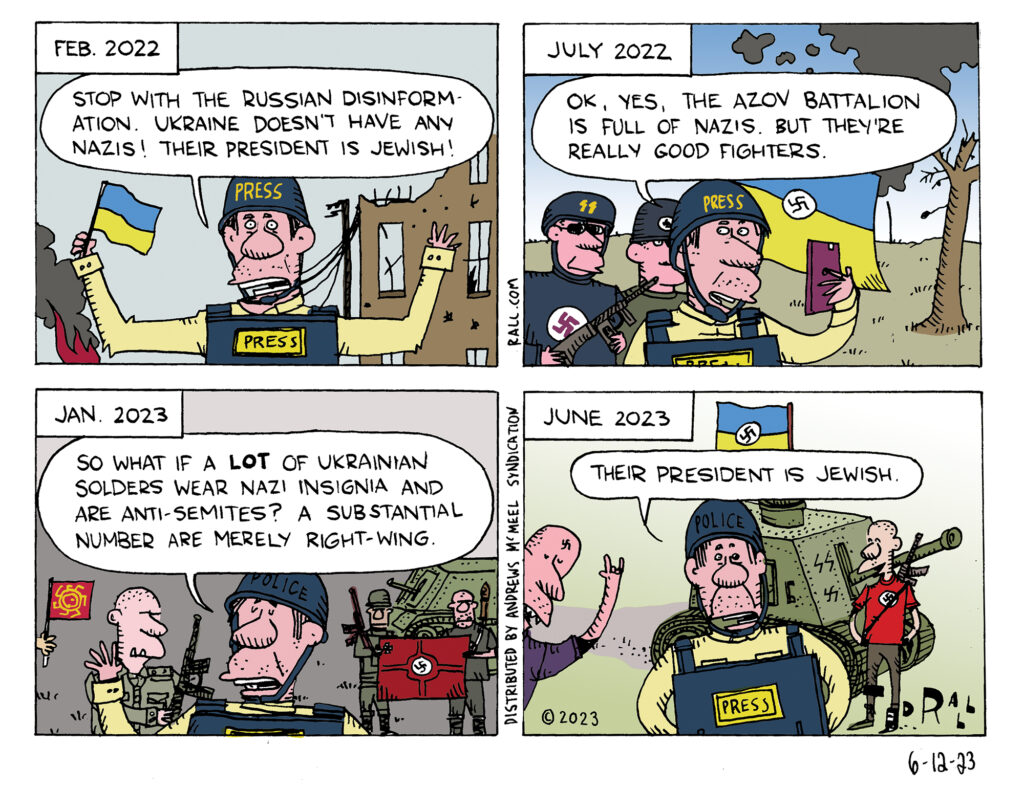

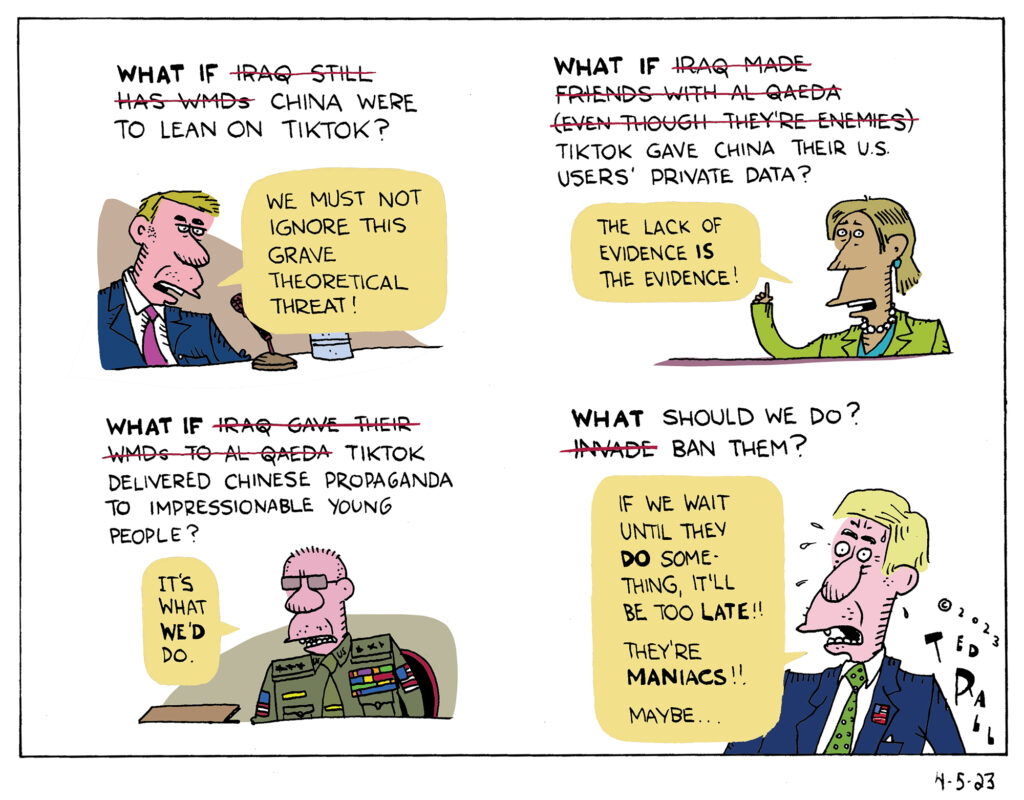
 America and the West have begun promoting the idea of a war against China over Taiwan. If China invades Taiwan, President Biden has
America and the West have begun promoting the idea of a war against China over Taiwan. If China invades Taiwan, President Biden has 